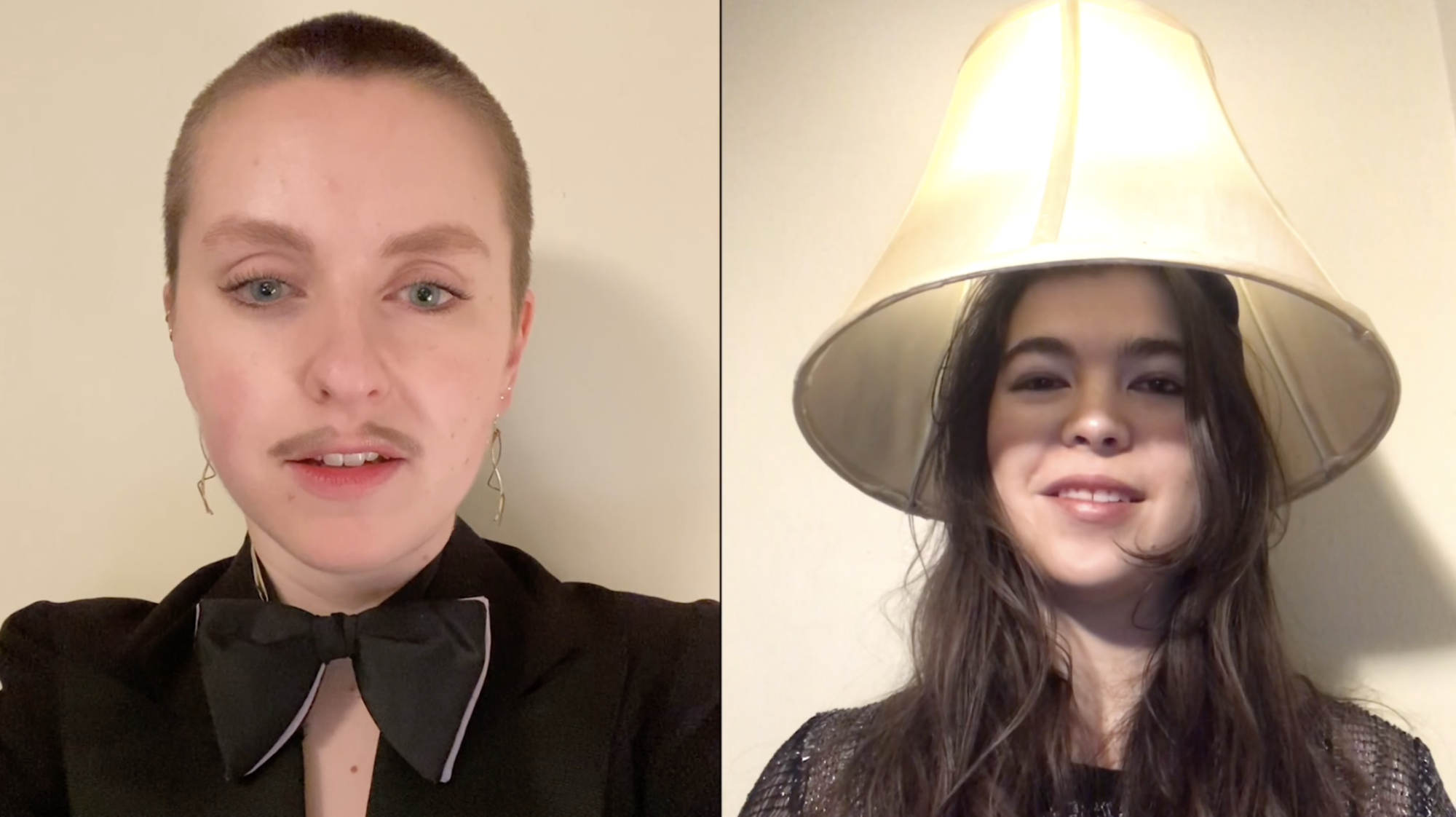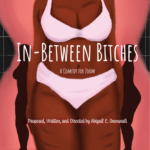
Courtesy of Lily Haje
This weekend, the Yale Cabaret’s Company of Cab 53 will present “Love Songs” — a collaborative multimedia performance experience. The performances will run on Oct. 23 at 8 p.m. and Oct. 24 at 4 p.m and 8 p.m.
“Love Songs” is staged virtually as a series of creative responses to “Songs to Joannes,” a 34-part poem by Mina Loy. When completed, it will include 34 independently-generated artistic works involving various forms of media — live performance, video, photo, music, sculpture and VR. This weekend, Cab will present the work’s first eight installments.
“We felt like it was the right time to do ‘Love Songs,’” said Lily Haje DRA ’23, who proposed this project with Madeline Pages DRA ’23. “Loy’s poem explores the topics of connections’ ambivalence and our isolation from others and ourselves, which have become more relevant than since we went on quarantine.”
Last fall, Haje and Pages read “Songs to Joannes” as part of their Dramaturgy Department class at the Yale School of Drama. This inspired the two to develop the poem into a live event. According to Haje, they “immediately fell in love” with Loy’s poem because of the way it combines nature, the mechanical world, scientific language, love and human connection.
Before quarantine, Haje and Pages had planned to organize a futurist episodic performance at the physical Cabaret, with 34 “artistic episodes” popping up on different parts of the stage. They referenced an avant-garde performance from Loy’s time as inspiration. But the pandemic changed these plans.
“We’ve done a lot of work over the summer to figure out how we can even make virtual theater work,” said Jisun Kim DRA ’22, co-artistic director of Cab. “We had to create everything from scratch. But it was very exciting to challenge the idea of conventional theater and come up with totally unique artistic experiences.”
In reimagining their “Love Songs” project digitally, Pages and Haje decided to design something more like a mixtape or album, where each component could be considered individually. When put together, the components will form a 34-part response to a 34-part poem, rather than a single staged adaptation of Loy’s piece.
According to Pages, the digital transition allowed Cab to bring more people into their creative process. She and Haje invited the performing artists to look at the poem and choose a section that resonated with them. The artists were then free to explore their creative processes as they saw fit.
Haje emphasized that she and Pages play the role of curators rather than directors, which allows artists and their individual works to remain at the foreground.
“This performance experience is largely based on artistic independence,” Pages said. “We wanted to allow artists to become the main actors of their piece and experiment with it.”
An important part of “Love Songs” is its collaborative nature. Several artists who work with different art mediums joined together to merge the mediums for the project. Kim told the News that the Cab was proud to showcase this diverse team of artists, which includes dramaturgs, actors, sound and lighting designers.
After this weekend’s debut of the first 8 “Love Songs” installments, Cab plans to release the rest of the 34 sections in similar groups of eight or nine “songs” over the course of the year. All associated artwork will remain available on Cab’s website for the rest of the academic year.
Once Yale returns to its normal operations, Haje and Pages hope to bring their initial project of a futurist show onto the Cabaret’s physical stage.
The Cab invites audience members to become a part of their creative team for the future installments of “Love Songs.” Students can email their own responses to the poem, ideas for artistic work or general questions about the project at minalovesongs@gmail.com.
Tania Tsunik | tania.tsunik@yale.edu








